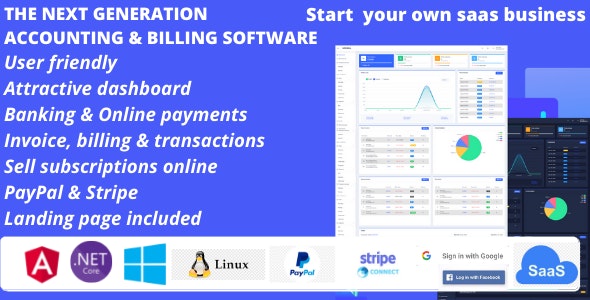
Nonprofit is a special type of business that does not profit but focuses on the public interest. Nonprofits, unlike for-profit organizations, don't have the obligation to pay income taxes in federal and state. This allows them to focus on their mission and gives their employees the opportunity to feel great about their work.
IT support can be a key component of a nonprofit's success. It will help them increase efficiency, enhance their mission impact, as well as improve their competitiveness. Many nonprofits have problems with IT management. Nonprofits can be frustrated by unoptimized technology systems, regardless of whether they have limited budgets or lack of expertise.
It is important to find an IT partner who can understand the needs of nonprofits. It is important to find an IT partner who has expertise in this sector. This will ensure that your technology systems work at their best.
IT Security for Nonprofits. Safeguard your Contributor and Donor data
One of the biggest challenges that nonprofits face is maintaining their data security. With the ever-increasing number of hackers in the world, it's crucial to invest in solutions that can protect your data. This includes multi-factor authentication and phishing prevention training.

A good IT services team is crucial for your organization's reputation and ensuring that donors and contributors have confidence in you. It is crucial to have a team that can identify vulnerabilities in your IT infrastructure, and provide solutions to protect your data.
You need a team that is able to quickly resolve IT problems in an emergency. A reliable IT company can respond quickly to any IT emergency. This can save your charity the cost of having additional staff available in case of an emergency.
IT support for nonprofits plays a critical role in keeping your nonprofit on the right path. IT support for nonprofits is essential to increase productivity, reduce costs, and secure donor and contributor information.
Your IT support staff should be able provide IT services for all employees, including mobile devices. This is especially useful if your staff works remotely from home. The IT support team you choose should be able access your office any time of the day, even during weekends.
If your nonprofit relies on sensitive data from donors and customers, you will need a managed backup solution. This will help ensure that you can recover your data and be back up and running in no time.

Nonprofits play an important role in society and should therefore be valued. They can also be susceptible to data breaches and hackers, just like any other business. A trusted IT support group for nonprofits is essential. They will work hard to secure your information.
EasyIT's IT team has been providing outstanding IT support for nonprofits since 1998. We would love to assist you. Contact us today to schedule your initial consultation and learn how we can make your nonprofit's IT run smoothly.
FAQ
How much are consultants paid?
Some consultants earn more than $100k per year, but most consultants earn between $25 and $50k. The average salary for a consultant is $39,000. This includes both hourly and salaried consultant.
Salary depends on the experience of the consultant, their location, industry, type and length of the contract (contractor or employee), as well as whether they have their own office or work remotely.
How long does it take for a consultant to be established?
It depends on the industry and your background. People start work with a few weeks before they find employment.
However, consultants can spend many years learning before they are able to find work.
What happens after the consultant has finished the job?
After the consultant has completed the work, they will submit a final document detailing the results. This report includes project timelines, deliverables, and any other pertinent information.
Then, you'll review the report and decide whether the consultant met your expectations. If not, you can either request changes or terminate the contract.
What does it mean to be a consultant?
Consultants are those who offer services to other people. It's not a job title. A consultant is a role that helps others achieve their goals. This is done by helping others understand their options and making the right decisions.
Consultants are skilled at solving problems and overcoming challenges that can arise during projects. They also provide advice and guidance on how to implement those solutions.
Consultants should be able and willing to answer any questions regarding business, technology or finance, leadership, strategy, customer service, legal, management, leadership, management, law, management, law, procurement, legal, marketing, human resources, etc.
What types of contracts exist for consultants?
When consultants are hired, they sign standard employment agreements. These agreements outline how long the consultant will work for the client, what he/she will get paid, and other important details.
Contracts can also indicate the areas of expertise that the consultant will concentrate on and the compensation they will receive. The agreement might state that the consultant will conduct training sessions, workshops or webinars.
Other times, the consultant simply agrees to complete specific tasks within a specified timeframe.
Many consultants also sign independent contractor agreement in addition and standard employment agreements. These agreements allow the consultant freedom to work without being paid.
Do I need legal advice?
Yes! Yes. Many consultants will create contracts for clients without seeking legal advice. This can lead to issues down the road. What happens if a client terminates the agreement after the consultant's completion deadline? What happens if the contract stipulates that the consultant must meet certain deadlines?
Avoid potential legal problems by consulting a lawyer.
What industries employ consultants?
There are many different types of consultants. Some consultants are focused on a specific type of business, others may specialize in multiple areas.
Some consultants are only available to private companies while others work with large corporations.
Many consultants also work internationally to assist companies from all corners of the globe.
Statistics
- 67% of consultants start their consulting businesses after quitting their jobs, while 33% start while they're still at their jobs. (consultingsuccess.com)
- On average, your program increases the sales team's performance by 33%. (consultingsuccess.com)
- "From there, I told them my rates were going up 25%, this is the new hourly rate, and every single one of them said 'done, fine.' (nerdwallet.com)
- So, if you help your clients increase their sales by 33%, then use a word like “revolution” instead of “increase.” (consultingsuccess.com)
- According to IBISWorld, revenues in the consulting industry will exceed $261 billion in 2020. (nerdwallet.com)
External Links
How To
What does a typical consultant's day look like?
A typical day will vary depending on the type of work you are undertaking. However, the majority of your day will consist of research and planning, meeting clients and preparing reports.
You will have many meetings where clients and you can discuss their issues. These meetings may be over the phone via email, on-line, or face-to–face.
Sometimes, you may be asked to create proposals. These are documents that outline your ideas and plans for clients. These proposals will be presented to clients by you and a mentor.
After all the planning and preparation you will have to put your efforts into creating some content. Writing articles, designing websites, editing photos or conducting interviews are just some of the options.
Depending on your project's scope, it may be necessary to do research to get relevant statistics. This could include finding out how many customers your company has and whether they purchase more than one product.
Once you have collected enough information, it's now time to present the findings to your clients. You may give your findings orally or in written form.
You must also follow up with clients following the initial consultation. For example, you might call them periodically to see how things are going or send emails asking them to confirm that they received your proposal.
Although this process can take time, it is important to stay focused and build good relationships with your clients.